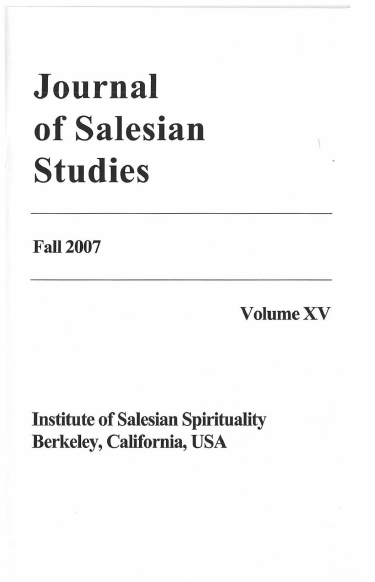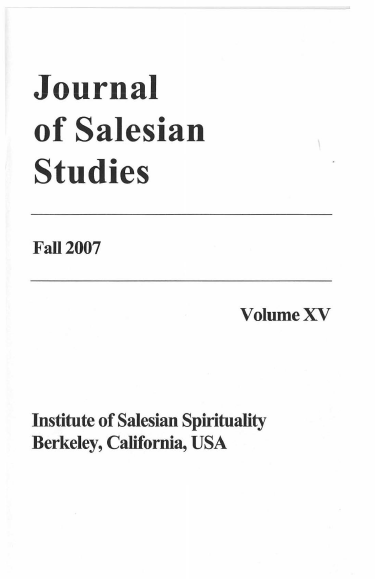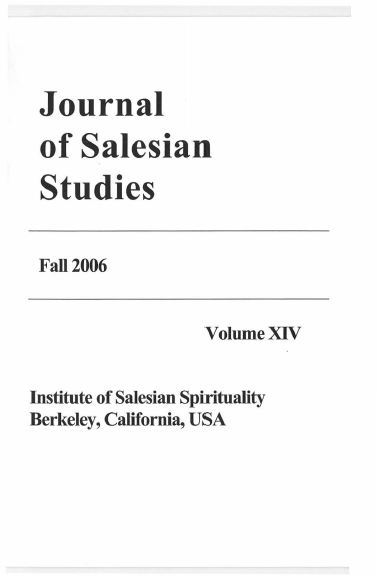The article of Fr. Arthur Lenti is very well documented, succinct, and concise. In my response, I would like to focus on two points. One is to appreciate the sapiential dimension of the motto that has permeated all aspects of the life of Don Bosco and the Salesian Family. Another is to call to mind the inter-cultural aspect which deserves more of our attention nowadays. Continue reading “Savio Hon – Back to Don Bosco: Da mihi Animas Response of Fr. Savio Hon Don Bosco Hall, Berkeley, Symposium July 20, 2007.”









